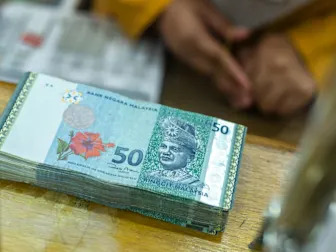
Emerging Market Currencies Gain as ‘Stars Align’ for Sector
(Bloomberg) -- Emerging market currencies rose, as President Donald Trump’s move to extend a deadline for aggressive tariffs on the European Union bolstered risk appetite.
Most Read from Bloomberg
JPMorgan’s Emerging Market Currency Index edged higher, on track to kick off its eighth consecutive weeks of gains — which would mark its best run since at least 2010. Meanwhile, MSCI’s gauge of EM currency returns climbed as much as 0.4% to match its all-time high.
Enthusiasm for the greenback has faded this year, due to Washington’s unpredictable trade policy and concerns about the deficit, with developing-nation currencies some of the major beneficiaries. Malaysia’s ringgit, the Polish zloty and Taiwan dollar were the biggest gainers on Monday, after Trump extended the tariff deadline on the European Union until July.
“We’re starting to really see the stars align now,” Amy Oldenburg, head of emerging market equity for Morgan Stanley Investment Management. “We’ve seen the dollar weakening quite considerably — that’s really given a tailwind to some of our markets.”
Risk-on sentiment was also evident in some equities markets. With a rise of 2% South Korea’s benchmark was the standout, while India’s flagship Nifty 50 gauge climbed 0.5%.
The wave of economic readings from Asia later this week is due to give observers a better a better sense of how Trump’s trade war is hitting commerce. On top of central bank decisions in South Korea and New Zealand, Thailand and the Philippines will release data on April exports and imports Friday.
As for the US, tariffs have yet to materially boost official inflation readings, the impact is due to become more apparent later this year. US economic growth is expected to cool, with many businesses becoming more guarded about the outlook as tariffs boost costs and weigh on consumer sentiment.
While Trump’s decision to extend the tariff deadline for the EU helps EM currencies, “gains have been relatively modest so far,” Piotr Matys, a senior analyst at inTouch Capital Markets, said. That can “be attributed to concerns that Trump’s tariffs may have stagflationary consequences for the US economy, which for many EM countries is the most important trading partner.”
--With assistance from Marcus Wong.
Most Read from Bloomberg Businessweek
©2025 Bloomberg L.P.